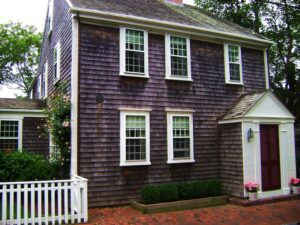Who is a member?
Our members are the local governments of Massachusetts and their elected and appointed leadership.

Nantucket is actively working to increase its housing stock.
Faced with an increasingly dire housing shortage, the town of Nantucket has invested more than $67 million in housing efforts in recent years, approved an override for future projects, and partnered with developers to bring additional housing to the island.
In May, Town Meeting and voters at the polls approved a $6.5 million override to fund affordable housing initiatives. The annual funds will add to the nearly $70 million Nantucket has already dedicated for housing, through a combination of budget allocations, debt exclusions and borrowing authorizations. The override will cost the owner of an average year-round property (currently $1.69 million) another $211 per year, factoring in a residential exemption.
Town officials say the housing situation has reached a crisis point, where soaring real estate prices are driving out long-time residents and making it increasingly difficult for people to live year-round or work in the island community of 14,000. In May, the median sale price for a Nantucket home was $4.7 million, according to Realtor.com, while the nonprofit Housing Nantucket estimates that more than half of the island’s year-round residents struggle to pay housing costs.
“You just can’t live here and not be aware of, and affected by, the housing issue in some way,” said Tucker Holland, Nantucket’s housing director.
The $67 million approved before this spring’s votes is ultimately expected to produce about 236 housing units. Holland said 38 households are under new roofs so far, with another 22 expected to get housing this fall.
Since fiscal 2020, the town has bought several lots and started issuing requests for proposals from developers; used the Community Preservation Committee fund to secure two $5 million borrowings; helped builders with financing to speed up development; and taken part in affordability buydowns for deed restrictions to lower prices for some new houses.
Up to this point, Nantucket has focused largely on rental housing, Holland said, but the override money will allow for more home ownership opportunities. Brooke Mohr, a member of Nantucket’s Select Board and the Affordable Housing Trust, said she sees numerous possibilities for the new funds, including programs to incentivize deed restrictions requiring year-round occupancy and possibly more affordable pricing. The town is forming a working group to examine possible deed restrictions, she said, and will analyze data to better understand specific housing needs and supply.
“It’s setting aside enough housing stock that we have a balance of visitor bedrooms to worker and community resident bedrooms that is good for the economy, good for the sustainability and the livelihood of the community, and really protects the visitor experience because they are actually to serve them when they come here,” Mohr said. “So that’s the long-term goal.”
Mohr and Holland agree that the housing problem affects municipal operations and every part of Nantucket life. Town government has several department heads retiring this year, and schoolchildren potentially face larger class sizes next fall due to staffing shortages. Nearly a third of the town’s positions turned over last year, Mohr said. Around town, restaurants can’t open daily because of staffing shortages, and even long-time residents are leaving for good, he said.
“Those are the people who coach our kids, volunteer on nonprofit boards,” Mohr said. “They’re the lifeblood of the community, and they’re giving up. It’s just really sad.”
For years, the town has also sought legislative support for a real estate transfer tax to support further housing initiatives. Those efforts haven’t yet succeeded, but Nantucket officials note that the idea is gaining momentum among other communities. Until that happens, they said, Nantucket must work to solve its own housing problem.
“We don’t have a choice here,” Mohr said. “We’re an island.”